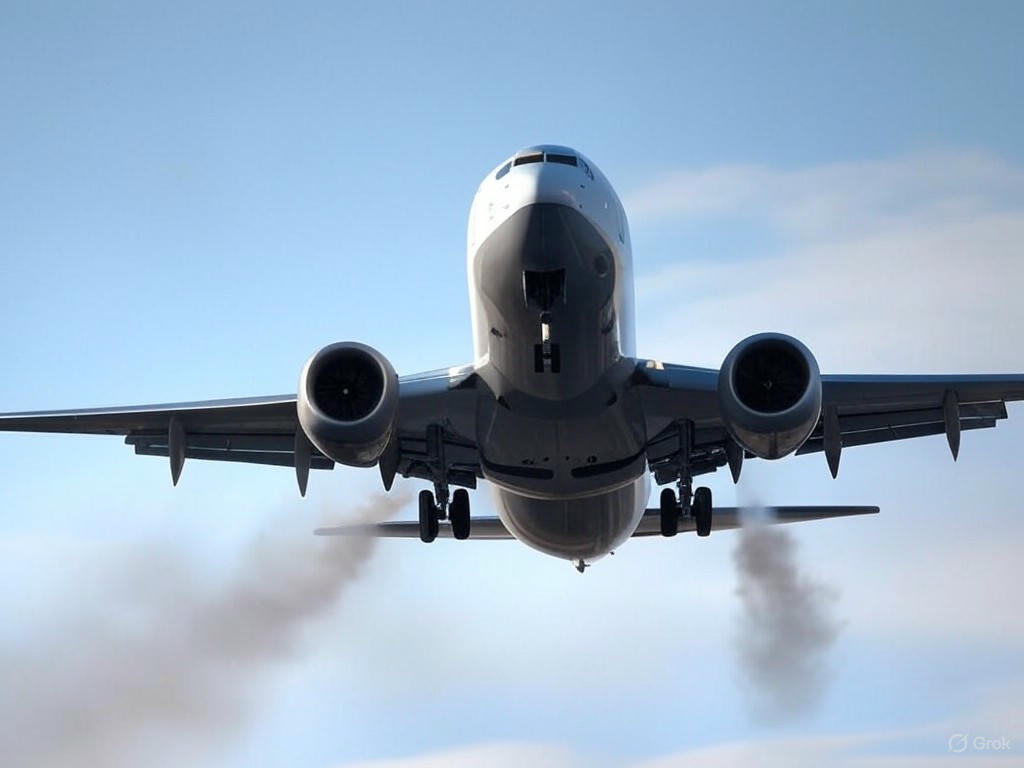Urgent Alert: Boeing 737 Max Engine Issues Raise Safety Concerns for Passengers
The aviation industry is on high alert following a critical warning from federal authorities regarding potential safety hazards with the Boeing 737 Max. Reports have surfaced about the risk of engine malfunctions that could lead to smoke infiltrating both the cabin and cockpit, creating a dangerous environment for passengers and crew alike. This urgent advisory stems from recent incidents that have spotlighted vulnerabilities in the aircraft’s engine systems, prompting immediate calls for action to protect air travelers.
The concern originates from a series of troubling events involving one of the nation’s major airlines. In two separate cases, engines on Boeing 737 Max planes suffered significant damage after encountering bird strikes during flight. These strikes led to mechanical failures that caused smoke to seep into the aircraft’s interior spaces. Such incidents not only jeopardize the safety of those on board but also raise questions about the resilience of the aircraft’s design under unexpected conditions. Federal regulators have emphasized the severity of the issue, urging airlines to implement stricter maintenance protocols and conduct thorough inspections to mitigate risks. The potential for smoke in the cabin is particularly alarming, as it can impair visibility for pilots and cause panic among passengers, potentially leading to chaotic situations mid-flight.
Beyond the immediate safety implications, this situation casts a spotlight on broader challenges facing Boeing. The company has already navigated turbulent waters in recent years due to previous concerns with the 737 Max model, including software glitches and grounding orders. These new engine-related warnings add another layer of scrutiny to Boeing’s reputation and operational reliability. Industry experts suggest that resolving this issue will require a collaborative effort between manufacturers, airlines, and regulatory bodies to ensure that safety remains the top priority. Some analysts speculate that enhanced engine shielding or redesigned components might be necessary to prevent future occurrences of smoke leakage after external impacts like bird strikes. Meanwhile, airlines operating the 737 Max are under pressure to reassure the public of their commitment to safety, with many already announcing plans for comprehensive fleet reviews.
As the investigation into these incidents continues, passengers are left wondering about the reliability of their travel options. Federal authorities have promised swift action to address the root causes of the problem, but rebuilding trust in the Boeing 737 Max will take time. For now, the aviation community is focused on implementing temporary safeguards while working toward long-term solutions. This latest chapter in the ongoing saga of the 737 Max serves as a stark reminder of the complexities and risks inherent in modern air travel. It also underscores the importance of vigilance and innovation in ensuring that every flight reaches its destination safely. As updates emerge, all eyes will remain on Boeing and its partners to deliver answers and, most importantly, guarantees of passenger safety in the skies.


